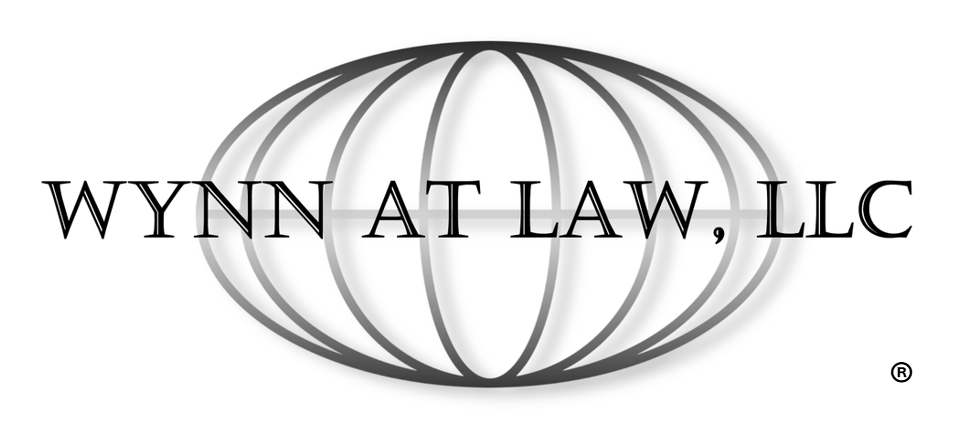Congratulations, you received and accepted an offer to sell your house! Before you can collect the proceeds of your sale, you must close the real estate transaction.
A real estate closing is the transfer of property ownership from the seller to the buyer. This complicated process has many steps and procedural formalities that make up the closing timeline. On average, it takes 30-60 days from when an offer is accepted until the transaction is complete.
Thankfully, Wisconsin real estate attorney, Shannon Wynn, created this article to help sellers navigate the complicated real estate closing process. Below is a breakdown of what sellers can expect during the closing process and a helpful real estate closing checklist for sellers. This guide splits the closing timeline into four phases:
- Offer
- Contingencies
- Title Work
- Closing
Hiring a real estate attorney makes selling real estate significantly smoother. If you are looking for a Wisconsin real estate attorney to help close on the sale of your property, contact Wynn at Law, LLC at 262-725-0175 or send us a message.

Real Estate Pre-Closing Checklist for Sellers
Below is a checklist of typical steps that sellers should plan for:
- Acceptance of Offer
- Provide Condominium Disclosures
- Prepare for Home Inspection
- Respond to Inspection Repair Requests
- Order Septic Test
- Order Well Water Test
- Respond to Testing Repair Requests
- Order Survey
- Prepare for the Appraisal
- Order Title Insurance
- Prepare the Deed or Conveyance Documents
- Review Transaction Paperwork and Legal Documents
- Move Out
- Clean the House
- Transfer Utilities
There may be additional steps that are specific to your situation. It is highly recommended that sellers contact a real estate attorney to ensure that all legal documents, communications, and closing criteria are lawfully met.
Contingencies – What Problems Could Cause Closing Delays?
A seller needs to meet every contract contingency requirement and deadline or request an extension to the Offer. While some issues may arise that may be out of the seller’s control, it is valuable to understand the most common reasons for closing delays.
Financing Problems – The most common reason for a closing delay is a financing issue on the buyer’s side. In these situations, buyers may have submitted an offer without loan pre-approval or offered a price outside their budget. In other cases, it may not be the buyer’s fault at all, but the lender is simply unable to meet the deadline and needs an extension to finalize the financing.
Appraisal Problems – Issues during the appraisal process are rare but can occur. One such problem is that the home’s appraisal value is lower than the price in the offer to purchase. Discrepancies in the appraisal value can lead to lender financing issues and may require renegotiating the sale price. Another, more common, issue is that the appraiser is simply unable to finish the appraisal by the contract deadline and requires an extension.
Inspection Problems – An official home inspection may reveal unexpected issues with the property. Depending on the severity of the inspection defects, you may have to hire a licensed contractor to make repairs or discount the sale price.
While these problems can be frustrating and delay the closing process, an attorney can resolve most of these issues. Talk to your real estate attorney to develop a plan if any of these problems arise.
Title Work
Title preparation is an essential part of the real estate closing process for buyers and sellers. A house title is the historical ownership record of a property that shows who currently owns the property, contains the legal description of the property, and shows any liens encumbering the property. Liens against the property prevent a property owner from having a ‘clean’ title. A property owner may need to fix the title before selling the property. A complete title review is a necessary step to ensure that the property is able to be sold to a buyer.
Typically, a title commitment is ordered, and a title search is conducted to review any existing records including deeds, mortgages, municipal assessments, liens, and other public documents that may impact the owner’s ability to sell the property. Once the title search and examination are complete, the title company prepares a title commitment and provides a copy to the buyer, seller and attorney.

Sellers Closing Day Checklist – What to Expect
Once your closing date has arrived, the contact contingencies are met, and the title has been checked, it is finally time to complete the sale.
The closing is hosted at the title company, and all involved parties will want to be there on time to sign the closing paperwork. If you would prefer, most closing companies allow sellers to pre-sign the closing documents as well.
Sellers should prepare to sign multiple documents for the closing, including:
- Closing Statement
- Closing Disclosure
- Deed
- Bill of Sale
- FIRPTA
- GAP Insurance
- Disclosure Statement
- Tenant/Work Affidavit
It’s wise for sellers to have a real estate attorney attend the closing. Attorneys often assist with unanticipated problems that can arise at closing, review documents, provide legal advice, protect your interests, and answer questions.
What Sellers Need to Bring to the Closing:
- House Keys and Access Codes
- Personal Checkbook for Minor Incidentals
- Lien Waivers from Contractors
- Government-Issued Photo ID for All Sellers Listed on the Contract
Ask your real estate attorney if any additional documents or items are needed, such as property tax statements, utility bills, proof of home warranty, or homeowners insurance documents.
Closing Costs for Sellers
Sellers are responsible for paying a variety of expenses involved in the closing. In addition to the remaining mortgage balance (if applicable), sellers can expect to pay 5-10% of the home sale price in closing costs. If the sale of the property is less than the total balance due, the remainder is often deposited into an escrow account by the seller prior to the closing. Below are some of the typical closing expenses for sellers:
- Real Estate Agent Commission
- State Transfer Taxes
- Loan Payoff Costs
- Outstanding Homeowner Association Dues
- Property Taxes
- Title Insurance Fees
- Title Company Closing Fees
- Real Estate Attorney Fees

After Closing Checklist
After signing the closing paperwork, the title is transferred and the keys are turned over to the buyer––it is finally time for the seller to receive the remaining balance of the property sale funds.
- Verify that the proceeds of the sale are correctly deposited into your account.
- Cancel your homeowner’s insurance policy.
- Keep your closing paperwork in a safe location.
- Change your address with the USPS and forward your mail.
Do I Need an Attorney to Close a Real Estate Transaction?
A real estate attorney is not required for closing a Wisconsin real estate transaction, but attorneys often play a crucial role in a successful real estate transaction. A licensed Wisconsin attorney can provide personalized guidance throughout the process while ensuring all legal documents, communications, and closing criteria are met.
When Should Sellers Hire a Wisconsin Real Estate Attorney?
It is beneficial for sellers to contact a real estate attorney at the listing stage, rather than waiting until later in the sales process. This allows your attorney to help with pre-offer tasks such as addressing contract negotiations and reviewing offer contingencies when you have an interested buyer. Once an offer is accepted, your attorney can help you manage the contingencies and closing process. The State Bar of Wisconsin explicitly lays out these six ways that real estate attorneys can help a seller:
- Write or review the listing agreement with the seller’s real estate agent
- Review the buyer’s Offer to Purchase
- Draft or review the seller’s Counteroffer and Amendments
- Help satisfy contingencies to the Offer
- Draft the Deed and other legal documents required to close the sale
- Advise the seller at closing to be sure all closing documents, including financial arrangements are in order
Wynn at Law, LLC Helps Real Estate Sellers Throughout The Closing Process
Selling a home or property is a complex process. By law, only a real estate attorney can provide you with legal advice during the home sale process, not a real estate agent, loan officer, or title company. Sellers need an experienced Wisconsin real estate attorney in their corner who will look out for their interests. Wynn at Law LLC’s real estate attorneys are active members of the Wisconsin Realtors Association and are available to address all of your questions and concerns.
Wynn at Law, LLC represents sellers in residential, commercial and vacant land real estate transactions. If you are interested in selling property, please contact Wynn at Law, LLC by phone at 262-725-0175 or send us a message. Wynn at Law, LLC has offices located in Lake Geneva, Salem, and Delavan, Wisconsin.
Continue Reading: Real Estate Closing Checklist for Buyers


